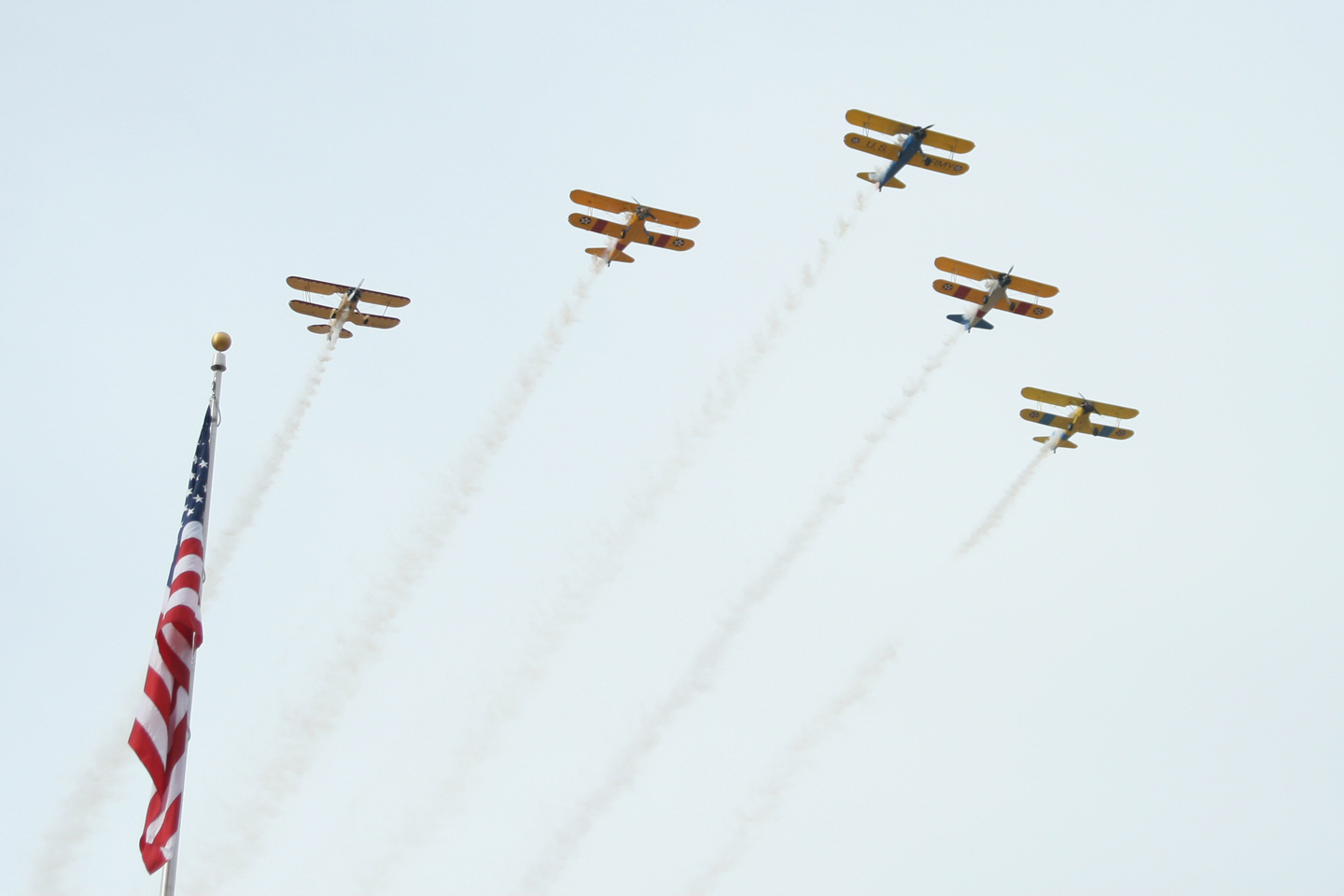By Colton Totland, News21

Memorial Day visitors at the National Cemetery of Arizona were treated to a flyover Monday morning by pilots in World War Two-era training planes. (Photo by Colton Totland, News21)
In T-shirts that depict John Larson as a smiling Army recruit, his family each year follows the row of headstones that lead to his grave.
Unlike many of those buried around him, Larson’s death came not from combat, but in a room at Fort Hood, Texas. Haunted by war and burdens at home, he committed suicide, his brother said.
Larson’s death is an extreme circumstance among post-9/11 veterans returning every month to another battle: transition to civilian life. Memorial Day belongs to these veterans as well, something that was clear Monday at the National Memorial Cemetery of Arizona, where the Larsons paid their respects.
“All families have a story,” Phil Larson said, pausing to glance at visitors across the cemetery of more than 43,000. “These families are visiting loved ones who passed away, whether they were shot in combat, or dealing with the strains of combat afterward.”
Hundreds of visitors gathered for an early morning ceremony — complete with music and a vintage biplane flyover.
James Ewald was one of two tuba players in the 108th Army band. Reservist Ewald said he only recently found work after returning from deployment more than a year ago.
“I just returned to a bad market,” Ewald said. The wire manufacturing company where he worked went out of business while he was on active duty. “I tried everything — even as a truck driver, nothing; pizza delivery, nothing.
“I hear it all the time from other veterans, and it’s a real problem,” he added.
Post-9/11 veteran unemployment still hovers around 2 percentage points higher than non-veterans, despite dozens of such efforts since 2011, according to the U.S. Department of Labor.
Finding adequate support for PTSD or other combat-related injuries seems even harder, with the average VA wait-time for compensation lasting upward of 315 days, according to the Berkeley, Calif.-based Center for Investigative Reporting.
